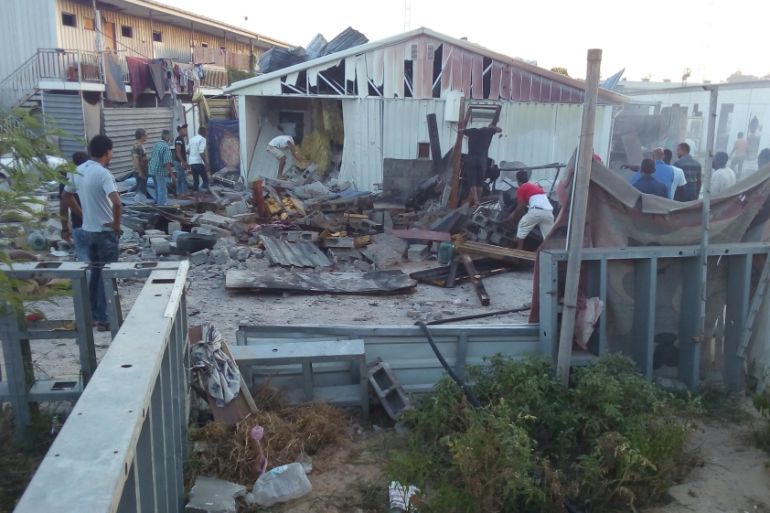UN: Ceasefire agreement reached to end Tripoli fighting
UN mission in Libya says rival militias in the capital agree to end all hostilities and to reopen Mitiga airport.

The United Nations’ mission in Libya says rival armed groups in Tripoli have reached a ceasefire agreement to end heavy fighting that has rocked the capital for more than a week.
The announcement on Tuesday came after Libyan authorities said that the death toll from the violence had risen to at least 61. Scores of people were also wounded.
“Under the auspices of [UN envoy Ghassan Salame], a ceasefire agreement was reached and signed today to end all hostilities, protect civilians, safeguard public and private property and reopen Mitiga airport in Tripoli,” the United Nations Support Mission in Libya (UNSMIL) mission said.
Under the auspices of SRSG @GhassanSalame, a ceasefire agreement was reached + signed today to end all hostilities, protect civilians, safeguard public and private property + reopen Meitiga Airport in #Tripoli #Libya pic.twitter.com/0J5bu4OsLq
— UNSMIL (@UNSMILibya) September 4, 2018
Fierce battles broke out in Tripoli’s southern districts on August 27 after the Seventh Brigade, an armed group based in Tarhouna, 65km southeast of the capital, launched a surprise offensive against rival militias.
A UN-backed truce was reached the next day but clashes resumed shortly after, forcing authorities to close Tripoli’s only functioning airport.
The violence prompted the UN-backed Government of National Accord (GNA) in Tripoli to declare a state of emergency on Sunday.
Earlier on Tuesday, Al Jazeera’s Mahmoud Abdelwahed reported from Tripoli that the situation remained tense, with sporadic fighting and indiscriminate rocket fire hitting residential areas.
Facebook blackout
On Monday, the social media website Facebook was blocked in Tripoli and the surrounding cities.
Libyan utility LPTIC, which owns the two state-run telecoms firms, said in a statement that a lack of security had led to outages. Maintenance engineers were unable to reach some stations which had stopped working due to a lack of power.
It did not comment on Facebook’s blocking.
Access to the web is controlled by state firms and monitored by security bodies which are effectively controlled by armed groups working with the weak GNA.
Independent national media based inside Libya scarcely exists as journalists often face threats from armed groups or officials unhappy with critical coverage
Libya slid into chaos after the 2011 uprising that overthrew and ruler Muammar Gaddafi and led to his death.
The country is governed by rival authorities in Tripoli and the country’s east, both of which are backed by an array of militias.